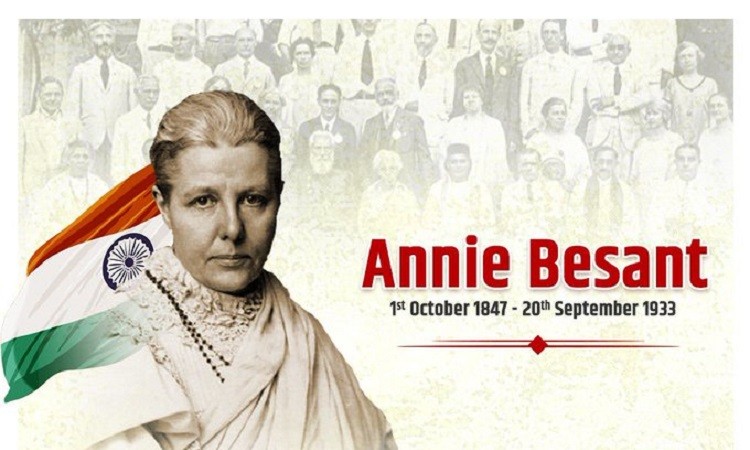
On September 20th, we remember and honor the life and legacy of Annie Besant, a remarkable woman whose contributions to society, spirituality, and social justice left an indelible mark on history. Annie Besant's journey was one of remarkable transformation, from an ordinary British woman to a prominent leader, writer, and advocate for various causes. Her death anniversary serves as a moment to reflect on her enduring impact and the principles she championed.
Early Life and Transformation:
Annie Besant was born on October 1, 1847, in London, England, into a middle-class family. Her early life was marked by tragedy as she lost her father at a young age. Despite the challenges, she was determined to pursue education and became a brilliant orator and writer. Her early career included work as a lecturer and writer, primarily on secular and socialist subjects.
Her spiritual journey took a profound turn when she encountered theosophy, a belief system that emphasizes the pursuit of wisdom and spirituality. Under the influence of the theosophical movement, she underwent a profound transformation, embracing spirituality and dedicating her life to the study and promotion of theosophy.
Theosophy and Advocacy:
Annie Besant became a prominent figure in the Theosophical Society, rising through its ranks to become its international president. Her eloquence and dedication helped spread theosophy worldwide. She was instrumental in translating and popularizing the works of Madame Blavatsky, the founder of the Theosophical Society, and wrote extensively on the subject herself.
Besant's commitment to social justice was evident in her advocacy for various causes. She was a vocal supporter of Indian and Irish independence, making her a controversial figure in British society. Her tireless efforts to champion the rights of colonized nations and workers' rights earned her both admiration and criticism.
Indian Connection:
One of Annie Besant's most significant contributions was her involvement in India's struggle for independence. She moved to India in 1893 and became deeply connected to the country. Besant's role in the Home Rule Movement in India, along with Bal Gangadhar Tilak, was instrumental in galvanizing Indian nationalist sentiment. Her passionate speeches and writings inspired countless Indians to join the fight for freedom.
Besant was also involved in educational reform in India, founding the Central Hindu College (now Banaras Hindu University) and advocating for secular education. Her tireless efforts in India solidified her place in the hearts of many Indians, and she remains a revered figure in the nation's history.
Annie Besant's death on September 20, 1933, marked the end of a remarkable life dedicated to the pursuit of spiritual wisdom and social justice. Her legacy lives on through the theosophical movement she helped shape and her contributions to the causes of Indian and Irish independence, workers' rights, and education reform. As we commemorate her death anniversary, we remember Annie Besant as a woman of great conviction, vision, and courage, who left an enduring legacy that continues to inspire generations to come.